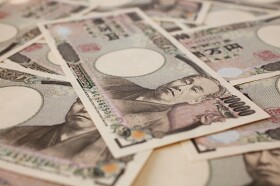As was expected, the Japanese yen dropped this week Shinzo Abeâs Liberal Democratic Party won parliamentary elections, allowing him to push the Bank of Japan for stronger monetary stimulus.
The BoJ did not disappoint those who expected more stimulus, expanding its asset purchase program during the policy meeting this week. Additionally, the central bank pledged to pursue more aggressive accommodative policy in the future. The BoJ did not change its inflation target, but promised to review it during the next meeting.
Outside of Japan, the major factor influencing the yen, as well as other currencies, was the debate among US politicians about a way to avoid the fiscal cliff that threatens the United States. For the most part of the week, it looked liked US leaders would be able to reach some form of an agreement. Yet by the weekend everything fell apart, spurring risk aversions and allowing the Japanese currency to trim losses.
USD/JPY closed at 84.21, near the opening of 84.31, while its weekly low was at 83.60. EUR/JPY was up from 110.59 to 111.01 and the weekly maximum of 112.47 was the highest price since August 7. GBP/JPY rose from 135.80 to 136.15, but retreated from the weekly high of 137.83, which was highest since April 10.
If you have any questions, comments or opinions regarding the Japanese Yen,
feel free to post them using the commentary form below.



Be First to Comment